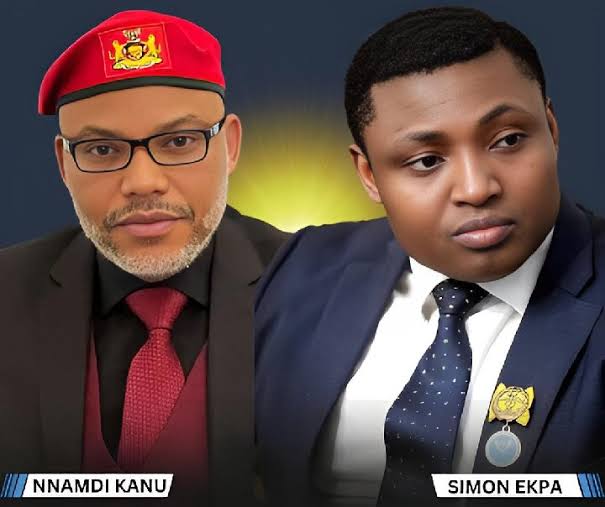Reactions continue to pour in following the arrest of Simon Ekpa, the self-proclaimed Prime Minister of Biafra, with Southeast indigenes calling for his sentencing in Finland. Last Thursday, Finnish authorities apprehended Ekpa and four others, who were subsequently detained by the Päijät-Häme district court for allegedly “spreading terrorist propaganda on social media.”
The Finnish National Bureau of Investigation (NBI) revealed that Ekpa, a dual citizen of Finland and Nigeria, is suspected of inciting violence and financing terrorism through his social media platforms, potentially leading to increased violence in Southeastern Nigeria.
Chief Inspector Otto Hiltunen, leading the investigation, stated, “The suspect has furthered his efforts from Finland, resulting in violence and other crimes in Southeast Nigeria.” This arrest comes amid escalating insecurity in the region, where armed groups have been terrorizing communities under the guise of advocating for the creation of an independent Biafra.
Reports indicate that these armed groups have been enforcing a Monday sit-at-home order originally initiated by the Indigenous People of Biafra (IPOB) to pressure the Nigerian government into releasing Nnamdi Kanu. However, IPOB has distanced itself from Ekpa, asserting that he is not affiliated with their organization.
In response to Ekpa’s arrest, Abia South Senator Eyinnaya Abaribe emphasized that the release of Nnamdi Kanu is the key to addressing insecurity in the Southeast. He argued that Kanu’s freedom would help distinguish genuine Biafra agitators from those engaging in criminal activities. “You want Biafra fine, but do you get Biafra by killing the same Biafrans you want?” Abaribe questioned.
Bishop Johnson, a retired U.S. Army captain and military strategist, expressed that the Finnish government’s handling of Ekpa’s case could significantly impact the violence in the Southeast. He cautioned that extraditing Ekpa to Nigeria could lead to increased violence if he is treated similarly to Kanu, who is currently detained under harsh conditions.
Johnson stated, “If he’s extradited to Nigeria, there is the possibility that instead of his arrest having a positive impact, it might even lead to more violence.” He emphasized the importance of due process in Ekpa’s case, noting that any perceived injustice could inflame tensions among his supporters.
Meanwhile, Osita Okechukwu, a former Director General of Voice of Nigeria and chieftain of the All Progressives Congress, called for Ekpa to be sentenced for his actions, whether in Finland or Nigeria. He described Ekpa as a criminal responsible for significant loss of life and economic disruption in the Southeast, asserting that there are more effective strategies to address the region’s marginalization.
Okechukwu stated, “I totally disagree with Ekpa’s strategy of committing heinous crimes against Ndigbo and grounding the Southeast geopolitical zone. I call for his sentence whether in Finland or in Nigeria.”
As the situation unfolds, the combination of Ekpa’s potential sentencing and Kanu’s release remains a focal point for stakeholders seeking to restore peace in the Southeast.


